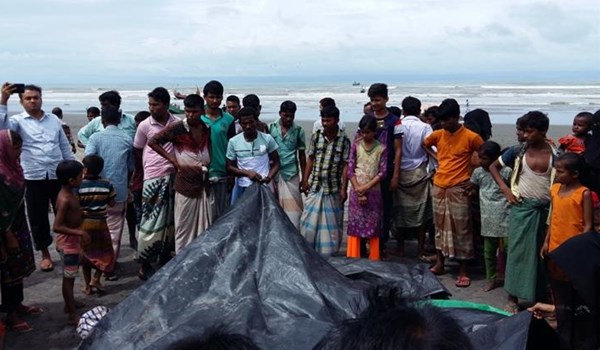
RNA - This year the theme for World Food Day, celebrated annually on 16 October – a date commemorating the founding of the Food and Agriculture Organization of the United Nations in 1945 – will focus on the link between migration, food security and sustainable rural development. The drivers and impacts of migration are intimately linked to fighting hunger and achieving food security, reducing rural poverty and promoting the sustainable use of natural resources.
That’s just half the story. What about conflicts and ethnic cleansing campaigns in places like Myanmar, where the UN is yet to effectively intervene? True, the UN Refugee Agency is rushing relief supplies to the border areas amid reports that over 500,000 Rohingya refugees have already crossed into Bangladesh. But what about stopping the bloodshed altogether? The UN can also set up refugee camps and settlements for those desperate souls, but for how long? Certainly, refugees cannot live in those horrible camps forever. They need protection and they need the right to return to their homes, not further UN pre-position of food, water and other life-saving supplies.
Since the violence started in northern Rakhine state in late August, nearly 520,000 refugees have sought safety in Bangladesh, joining an estimated 300,000 Rohingya refugees who have been hosted there since the 1990s. Those who fled Rakhine have told of village burnings, beatings, gang rape and mass killings in the hands of the country’s military forces and the region’s Buddhists. The Myanmar government has firmly denied the claims, but that’s for show.
The violence by the military and extremist Buddhist monks, who preach a dangerous form of religious chauvinism to their followers have caused killings of Muslims in Myanmar, Sri Lanka, and Thailand. But, what has been happening in Myanmar is in epic proportion. Monks and their followers with full support from Aung San Suu Kyi and her so-called democratic government and the army personnel are killing Rohingya Muslims and burning their homes. Social media outlets are full of video clips of this genocide.
It is time for the UN Refugee Agency to coordinate its response with the Bangladesh government and other UN member states to stop the state-sponsored terror and pave the way for the safe return of Rohingya Muslims to Myanmar. The UN should condemn the violence and call on the military regime’s authorities to suspend military action, end the violence, and uphold the rule of law. It’s an important first step.
Unfortunately, the Security Council continues to ignore the large-scale ethnic cleansing of the Rohingya and refuses to hold an open meeting to urge an end to the violence. The Council needs to escalate this to the level that a crisis that bears the hallmarks of ethnic cleansing deserves. This is yet to be the case.
The humanitarian situation is catastrophic. As maintained by UN Secretary-General Antonio Guterres, “What is happening in Rakhine State is ethnic cleansing. When one-third of the Rohingya population had to flee the country, can you find a better word to describe it?”
In the prevailing environment, what the Security Council needs now is a resolution; a resolution that expresses concern about the excessive violence and demands immediate steps to end the violence in Rakhine, de-escalate the situation, re-establish law and order, ensure the protection of civilians, restore normal socio-economic conditions, and resolve the refugee problem. This will send a clear message to the Myanmar military regime that its sense of impunity cannot go on forever.
Furthermore, arms transfers, military training and cooperation must be stopped and replaced by a policy of critical engagement. Visa bans, not red carpets, should be rolled out by the international community. Countries should impose unilateral arms embargoes until a UN-mandated global arms embargo can be ratified. Countries with existing arms embargoes should expand those embargoes to cover supplying equipment of any kind to the military. Military-owned companies should be targeted with sanctions. Last but not the least, the Security Council should refer the situation in Myanmar to the International Criminal Court in The Hague.
There is no shortage of options for pressuring the Myanmar military regime to stop the ongoing campaign of ethnic cleansing against the Rohingya Muslims. All that is lacking is political will at the Security Council and the General Assembly. The lives and the future of the Rohingya and the prospects of a genuinely democratic Myanmar depend on that spirit being found at the Council and the Assembly.
847/940